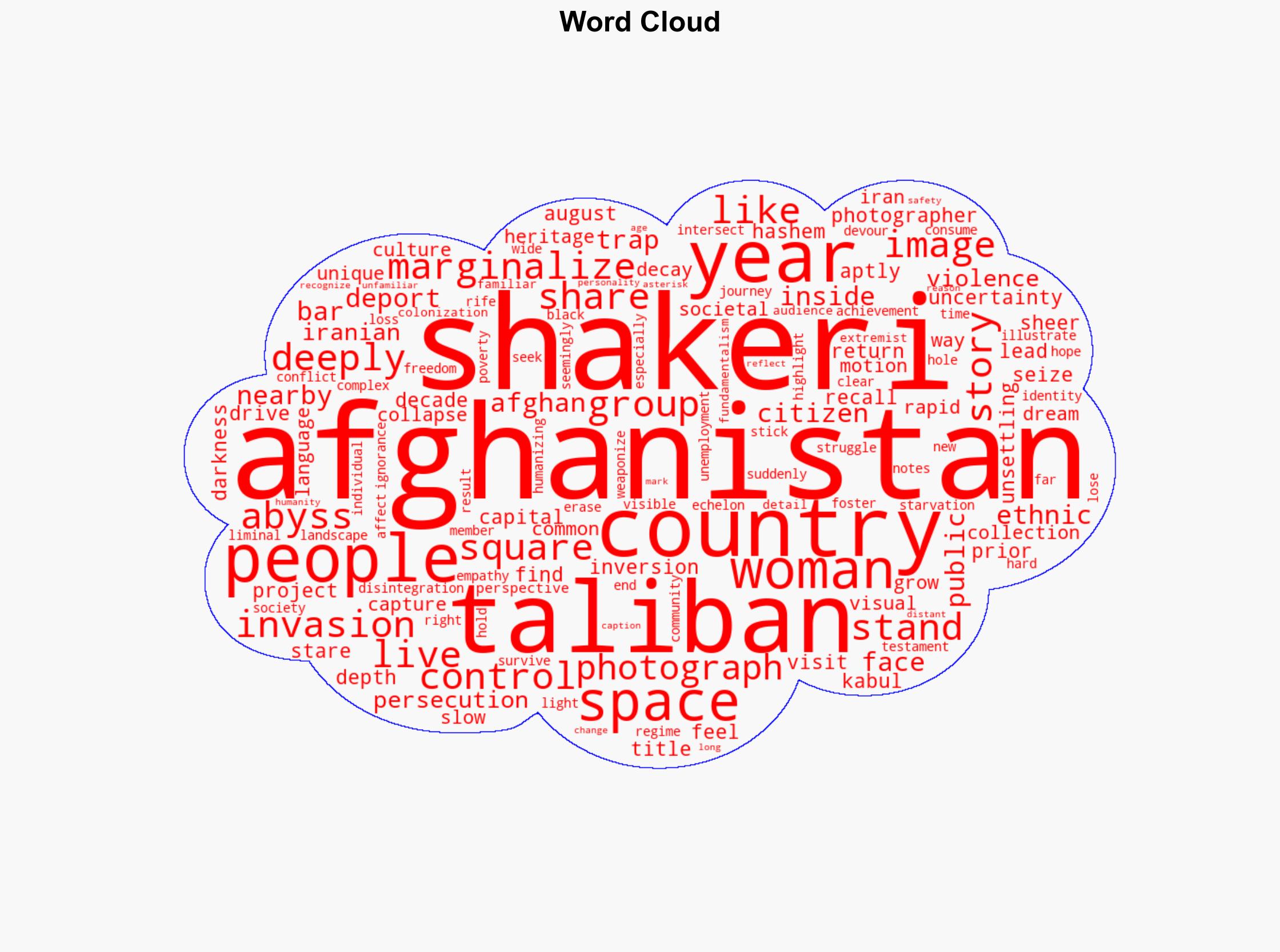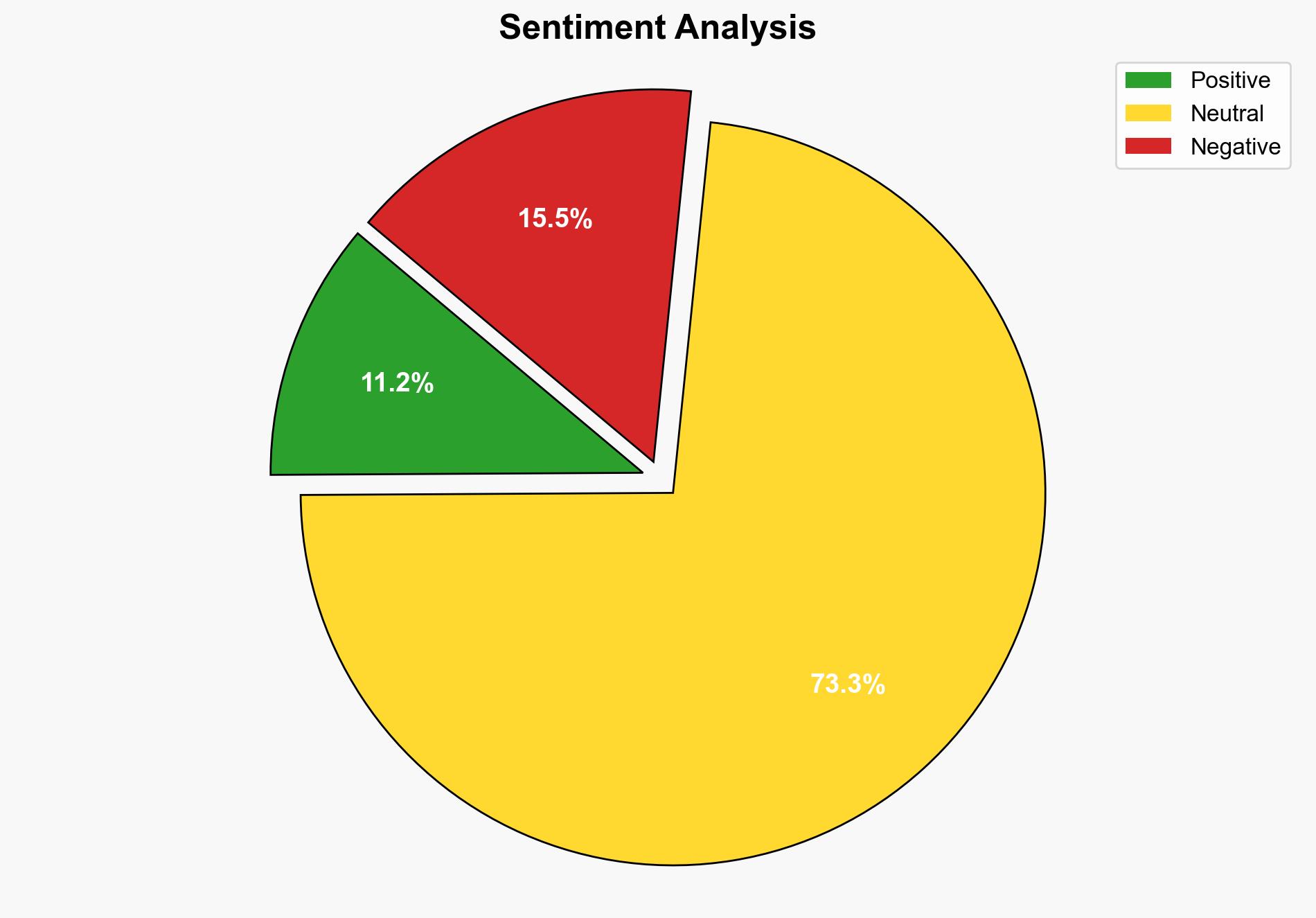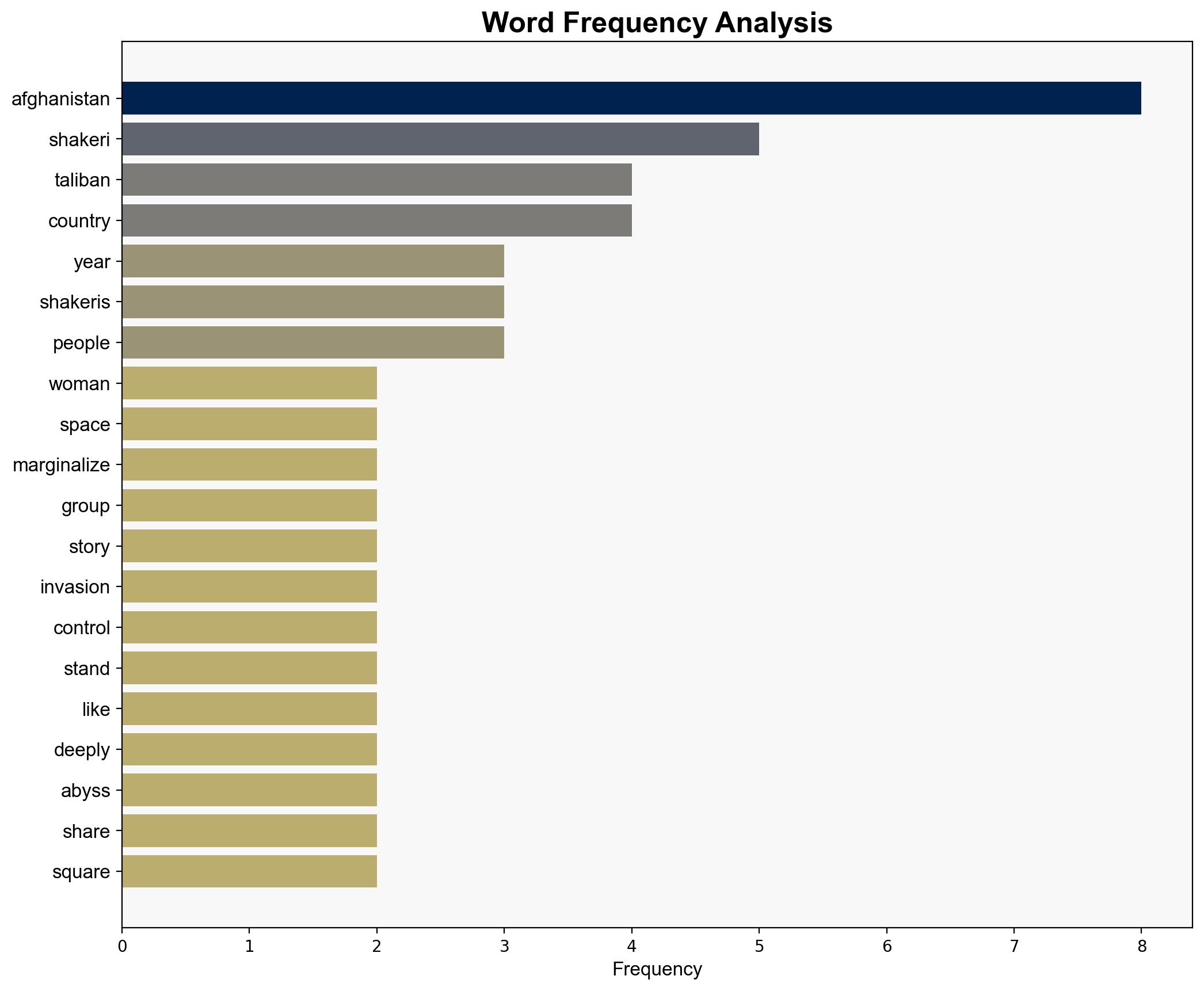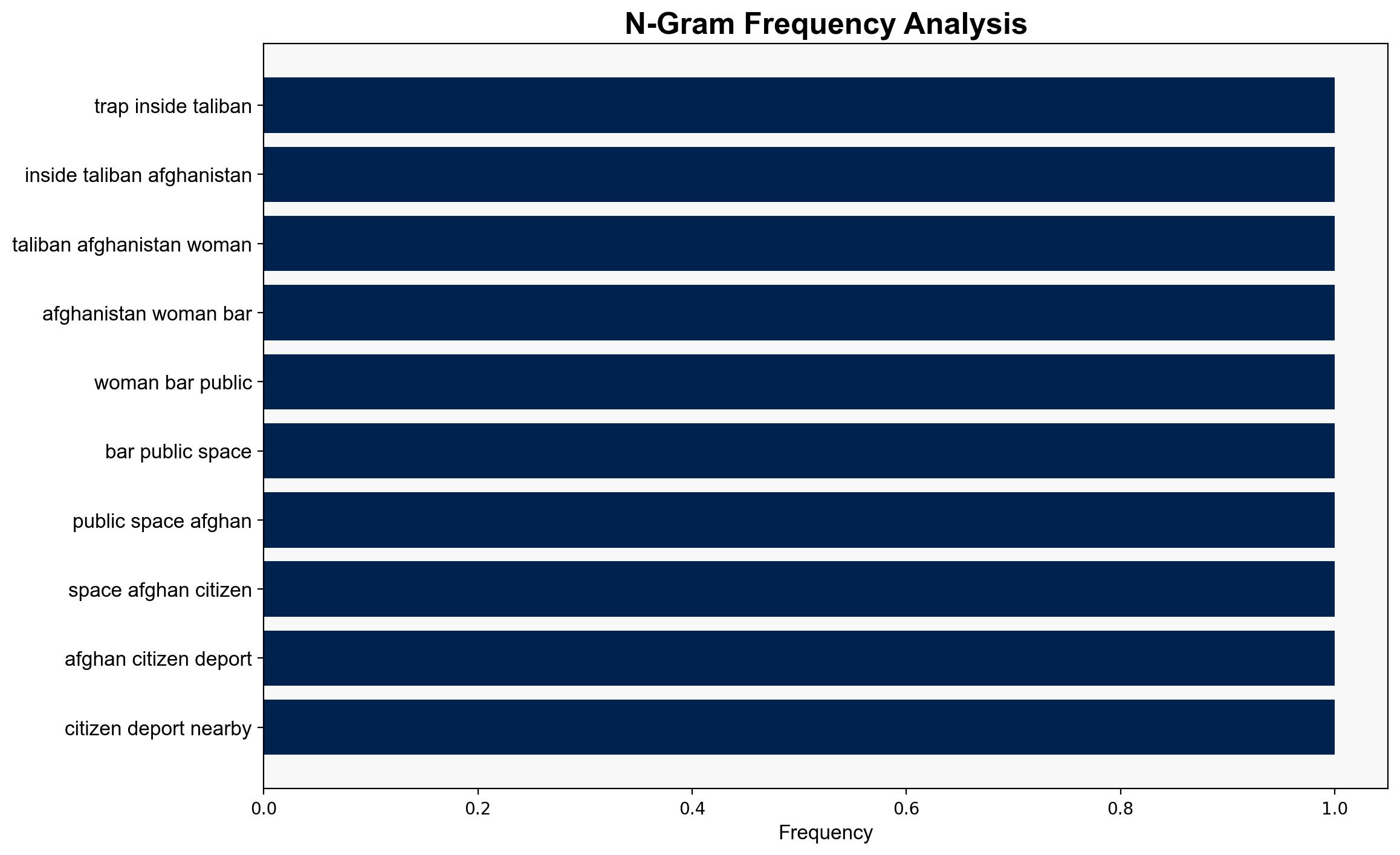Trapped inside the Taliban’s Afghanistan – National Geographic
Published on: 2025-10-15
Intelligence Report: Trapped inside the Taliban’s Afghanistan – National Geographic
1. BLUF (Bottom Line Up Front)
The most supported hypothesis suggests that the Taliban’s control over Afghanistan is leading to a significant socio-economic and cultural regression, exacerbating humanitarian crises. Confidence in this hypothesis is moderate due to limited direct evidence and potential biases in reporting. Recommended action includes increasing international diplomatic pressure and humanitarian aid to mitigate the adverse effects on marginalized groups.
2. Competing Hypotheses
1. **Hypothesis A**: The Taliban’s governance is causing a regression in Afghanistan’s socio-economic and cultural landscape, leading to increased poverty, unemployment, and human rights abuses, particularly against women and marginalized groups.
2. **Hypothesis B**: The situation in Afghanistan, while dire, is being exaggerated by external narratives, and the Taliban is making some efforts to stabilize the country, albeit with limited success.
Using ACH 2.0, Hypothesis A is better supported by the evidence of societal collapse and regression captured in Shakeri’s photographs and narrative. Hypothesis B lacks substantial evidence and relies on potential bias in external narratives.
3. Key Assumptions and Red Flags
– **Assumptions**: Hypothesis A assumes that the Taliban’s policies are inherently regressive and detrimental to societal progress. Hypothesis B assumes that external narratives may exaggerate the situation for political purposes.
– **Red Flags**: Potential bias in Shakeri’s perspective as an Iranian photographer with cultural ties to Afghanistan. Lack of direct evidence from diverse sources within Afghanistan.
– **Blind Spots**: Limited insight into any positive developments or stabilization efforts by the Taliban.
4. Implications and Strategic Risks
The continued regression in Afghanistan could lead to increased regional instability, refugee flows, and potential for radicalization. Economic collapse may invite external influence from neighboring countries, altering geopolitical balances. Psychological impacts on the Afghan population could hinder future reconciliation efforts.
5. Recommendations and Outlook
- Enhance diplomatic engagement with regional powers to coordinate humanitarian aid and pressure the Taliban for reforms.
- Monitor refugee movements and prepare for potential humanitarian crises in neighboring countries.
- Scenario Projections:
- Best Case: Taliban implements moderate reforms under international pressure, stabilizing the socio-economic situation.
- Worst Case: Continued regression leads to a humanitarian disaster and regional conflict.
- Most Likely: Incremental deterioration with sporadic international interventions.
6. Key Individuals and Entities
Hashem Shakeri (Iranian photographer) is a key individual providing visual documentation of the situation in Afghanistan.
7. Thematic Tags
national security threats, humanitarian crisis, regional instability, socio-economic regression





